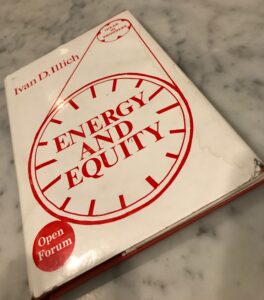Did my EV driving cause a coup in Bolivia? That’s a question too big and complicated for this space on many levels, but the point is to connect a few dots. In the consumption-driven western world, we seem mostly oblivious to dots, or at least look the other way to avoid the messy inconvenience of them. In fairness to people, our corporate media just doesn’t tell us. Making change here for the better is going to necessitate seeing things we’ve never bothered to see.
With the big push to electrify transportation and to move away from fossil fuel as an electric generation source, batteries are a big deal and it takes lithium to build them. We can readily imagine the conflict around the Persian Gulf and the staggeringly massive amounts of money we spend on military to protect the oil fields and shipping lanes. The costs of burning gas, oil and coal are astronomical and not just in terms of trillions on military. The climate and health wrecking done by burning stuff is now undeniably (at least to most of us) of planetary and civilizational consequence. So okay, what about batteries? Yes there are consequences, despite how much cleaner electric vehicles are than gas and diesel. 
As the world turns to electrification, so too do those industries covet lithium for batteries, and there’s a lot of it in Bolivia. Potosi, situated in Bolivia’s southern highlands, was exploited by the Spanish for silver, by the U.S. for tin in WWII, and now by a global competition for lithium. I’ll side with EVs and a renewable energy electric future to give us any chance of keeping the human enterprise from melting. But we need a consciousness of the relationship between these conflict minerals and our “lifestyle.”
The question of mobility keeps me thinking about not just renewables for fixed site energy production and consumption, but about what it’s going to take to move us and things around. Underneath that question is another- how much do we actually need to move, how fast, by what means, and at what willing cost? I’ve re-read Ivan Illich’s Energy and Equity several times lately; these are really his questions. I recommend you read it too. If we’re really going to change the way we see our futures, we’ll have to reconcile our mental models around mobility. We can build a runaway feedback loop just as easily with EVs as we’ve done with gas guzzling cars since WWII. More roads, more sprawl, more travel, more roads…and, more energy consumption and land desecration.
From my limited understanding, Evo Morales was shown the door in Bolivia last week, maybe in part because he’d wanted to nationalize the country’s lithium. And maybe those around Potosi wanted more localization of the wealth. Global actors wanted none of the above. China is certainly interested and I doubt the west wants that. I’ve read about Tesla’s interest in Bolivian lithium and how it’s stock went up when Morales landed in Mexico City.
So we’re here trying to do our best to cut our carbon footprint while the Cerro Rico Bolivian miners are exploited just like those of other generations and like our central Appalachian coal miners. Our consumption, even despite our best efforts at conservation does ripple out. I’m not saying we trade in our Nissan Leafs for Chevy Suburbans. Nope. I’m saying connect the dots and understand that our actions “put the poor man in the hole and history remains the same.”*
——–
*This is a line from an Appalachian singer songwriter I first met at the University of Kentucky. He sang this song at a conference at App State about a decade ago and the words stayed with me- Desde Appalachia Hasta Potosi.